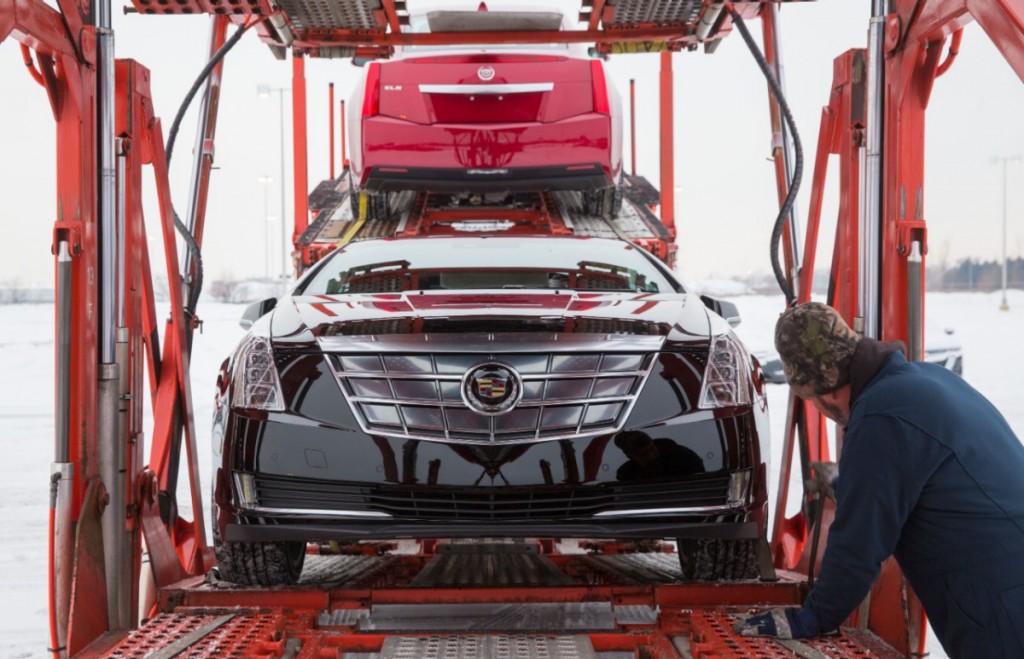
OTTAWA Canadas free trade deal with Europe will almost certainly be a winner for some sectors, but ontarios automakers can expect the mostly one-way traffic in trade to worsen once the pact is implemented, according to a new study on the issue.
The report, authored by Jim Stanford, an auto industry economist with Unifor, Canadas largest private sector unio, calculates Europes $5.3 billion trade surplus in vehicles and parts last year a record high will balloon to more than $7 billion within a decade of the deal taking effect.
The damage could be far worse once the impact of the South Korean trade deal and potential pact with Japan are added in, says the study released by the Canadian Centre for Policy Alternatives.
That would be a triple whammy, Stanford said. The fact you lose a few thousand units of volume of Cadillacs or Lexus or whatever isnt a game changer, but if all those things combined change companies minds about the viability of Canadian plants at a time we are fighting tooth and nail for every investment we can win, then we will really have shot ourselves in the foot.
Stanford notes that Canada has huge trade deficits in autos with all three markets.
Canada did win some concessions in the agreement in principle with Europe, which was announced last October but has yet to be formally signed, the report notes. Both sides will benefit from the elimination of tariffs and Europe accorded Canada a potential quota of 100,000 vehicles, more than 10 times what it exports now, and generous rules of origin criteria.
(But) the lack of market foothold, lack of brand awareness and general lack of interest by Canadian-based automakers in exporting from Canada to Europe all indicate that the increase in Canadian vehicle exports to the EU will be marginal, the report concludes.
That is not the case the other way. With well-established dealerships throughout Canada, European shippers of BMWs, Audis, Mercedes and others will be able to win over new customers from the elimination of a 6.1 per cent tariff.
One saving grace is that Europeans tend to ship so-called luxury vehicles the average wholesale price of the exports to Canada was $36,000 per vehicle in 2013.
But Stanford notes those vehicles are in direct competition with a Cadillac model made in Oshawa, Lincolns from Oakville, the Chrysler 300C from Brampton and Lexus assembled in southwest Ontario.
Meanwhile, according to industry sources, the principal Canadian export to Europe is the Camaro and ironically, General Motors has recently announced its intention to shift production of this vehicle to a U.S. plant, he adds.
Fords Edge is a big export vehicle for Canada, but is not being shipped to Europe wher Ford has manufacturing capacity already established.
In fact, Europe is winning the trade battle now hands down. Since 1999, the EU has increased its shipments in autos and auto products into Canada by 128 per cent, with the steepest gains coming after 2007. Meanwhile, Canadian exports into the EU have fallen by 45 per cent.
Europe now enjoys a 20:1 advantage in the sector with Canada importing $5.6 billion in auto products from Europe in 2013 while exporting just $263 million worth.
The numbers could be worse, says Stanford, because he believes the government doesnt exactly know what Canada exports to Europe and is likely inflating the number of vehicles it believes are being shipped across the Atlantic.
The auto chapter in the Canada-European unio trade agreement was always regarded as a hard sell in Canada, much as it was in the deal reached with South Korea.
Even the joint Canada-EU study of 2008 that pre-dated the start of formal negotiations laid out a scenario that tariff elimination would benefit European exporters more.
Stanford report notes that the study looked at the state of play in 2007 and since then Europes trade surplus in the sector has grown exponentially, so the potential damage going forward is also greater.
The Harper government has sold CETA, as the deal is called, as the most comprehensive agreement ever negotiated by Canada and a net benefit to the country, particularly for beef and pork producers.
But it has also conceded there could be sectoral losers as well, and pledged compensation for cheese producers and provincial drug programs if they are damaged. It made no pledge for the auto sector, however, which also could be a big loser.
Scotiabank auto sector analyst Carlos Gomes said the hope is that CETA will spur domestic automakers to make a greater effort to export. That hasnt happen historically because the industry was set up to supply the American market, he said, while the Europeans have a global strategy.
The reality is that virtually all of our exports (in autos) and even parts tend to remain within North America, so if you lower tariff on European imports presumably you get more of them, said Gomes.
The report makes several recommendations to make the deal less damaging, including targeted support to assist Canadian automakers to develop offshore markets and requiring European automakers to establish production facilities in Canada.
Regardless, Stanford concludes, ontarios hard-pressed auto sector will be a key loser in the CETA deal. The only question is whether it will be a fender-bender or a jarring crash.




